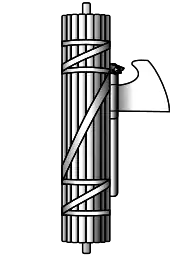Ugo Spirito
Ugo Spirito (September 9, 1896, Arezzo – April 28, 1979, Rome) was an Italian philosopher; at first, a fascist political philosopher and subsequently an idealist thinker. He has also been an academic and a university teacher.
| Part of a series on |
| Fascism |
|---|
 |
Early life
Spirito undertook academic study in law and philosophy.[1] He was initially an advocate of positivism although in 1918, whilst attending Sapienza University of Rome, he abandoned his position to become a follower of the Actual Idealism of Giovanni Gentile.[2] By the age of 22 he was a self-proclaimed fascist and actualist.[2]
Fascism
Spirito's particular interest in fascism was corporatism and he came to discuss the subject in depth through the journal Nuovi Studi di Diritto, Economica e Politica.[2] He wrote extensively on his favoured topic of 'integral corporatism', a system where ownership would be concentrated in the hands of workers rather than shareholders.[3] This belief in integral corporatism was sometimes equated with a commitment to common ownership.[4] Effectively therefore he represented the left-wing of fascism by supporting corporatism as a means of mass nationalisation and was the butt of criticism from other fascists who accused him of Bolshevism.[5] Spirito's economically left-wing ideals did not come to fruition in Fascist Italy and in the later years of fascism Spirito fell out of favour with Benito Mussolini.[2] Indeed, in 1942 he even attempted to publish a book of his theories, entitled Revolutionary War, but permission was denied by Mussolini.[6]
Academic career
Outside of his involvement in fascist politics, Spirito held professorships at the University of Pisa, University of Messina, University of Genoa, and at Rome itself.[2] Initially, his academic attention was taken up with economics and criminal law, but, later in his career, he became more interested in philosophical questions.[1] In terms of publications, he served as editor of the Giornale Critico della Filosofia Italiana and the Enciclopedia Italiana, and as joint director of the Nuovi Studi di Diritto, Economica e Politica.[1]
References
- Philip Rees, Biographical Dictionary of the Extreme Right Since 1890, Simon & Schuster, 1990, p. 371
- C.P. Blamires, World Fascism - A Historical Encyclopedia, ABC-CLIO, 2006, p. 629-30
- Roger Griffin, Fascism, Oxford University Press, 1995, p. 68
- P. Davies & D. Lynch, Routledge Companion to Fascism and the Far Right, 2002, p. 241
- Stanley G. Payne, A History of Fascism 1914-45, Routledge, 1995, p. 220
- Stanley G. Payne, A History of Fascism 1914-45, Routledge, 1995, p. 387
Further reading
- Italian
- Cammarana, Antonio, Proposizioni sulla filosofia di Giovanni Gentile, prefazione del Sen. Armando Plebe, Roma, Gruppo parlamentare MSI-DN, Senato della Repubblica, 1975, 157 Pagine, Biblioteca Nazionale Centrale di Firenze BN 758951.
- Cammarana, Antonio, Teorica della reazione dialettica : filosofia del postcomunismo, Roma, Gruppo parlamentare MSI-DN, Senato della Repubblica, 1976, 109 Pagine, Biblioteca Nazionale Centrale di Firenze BN 775492.
- Russo, Antonio (1999). Ugo Spirito. Dal positivismo all'antiscienza. Milan: Guerini editore.
External links
- Tarquini, Alessandra (2019). "SPIRITO, Ugo". Dizionario Biografico degli Italiani, Volume 93: Sisto V–Stammati (in Italian). Rome: Istituto dell'Enciclopedia Italiana. ISBN 978-8-81200032-6.